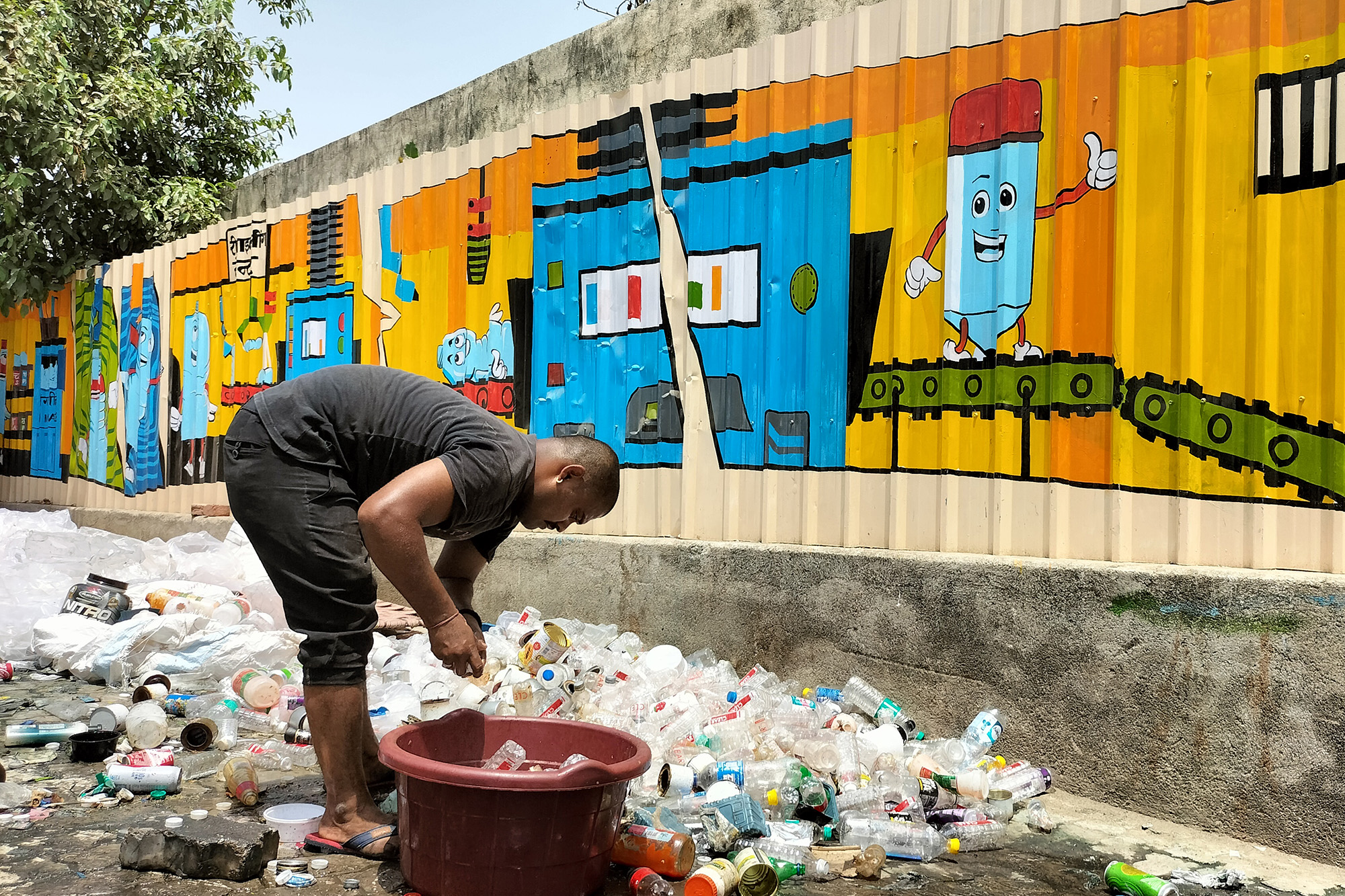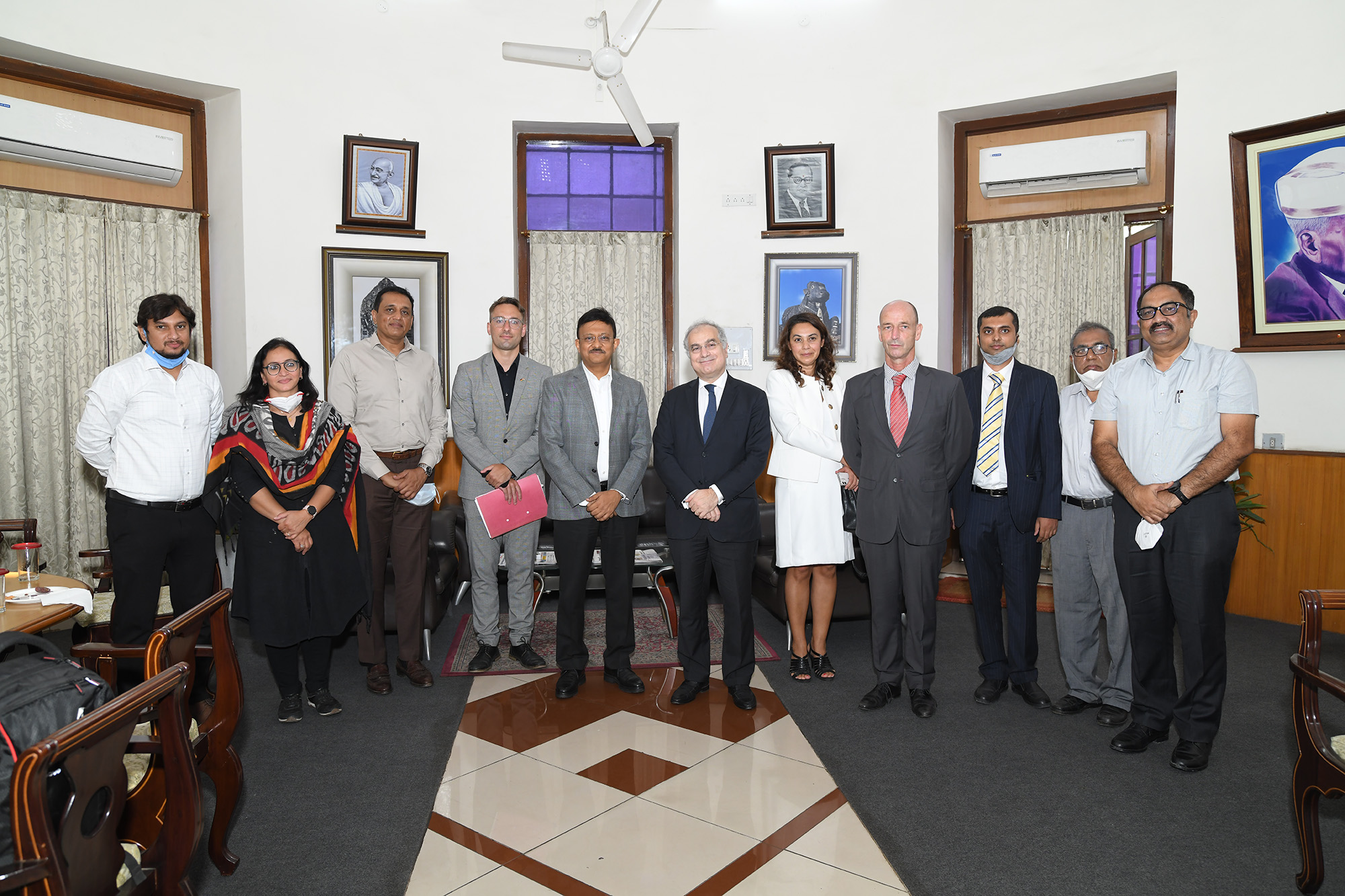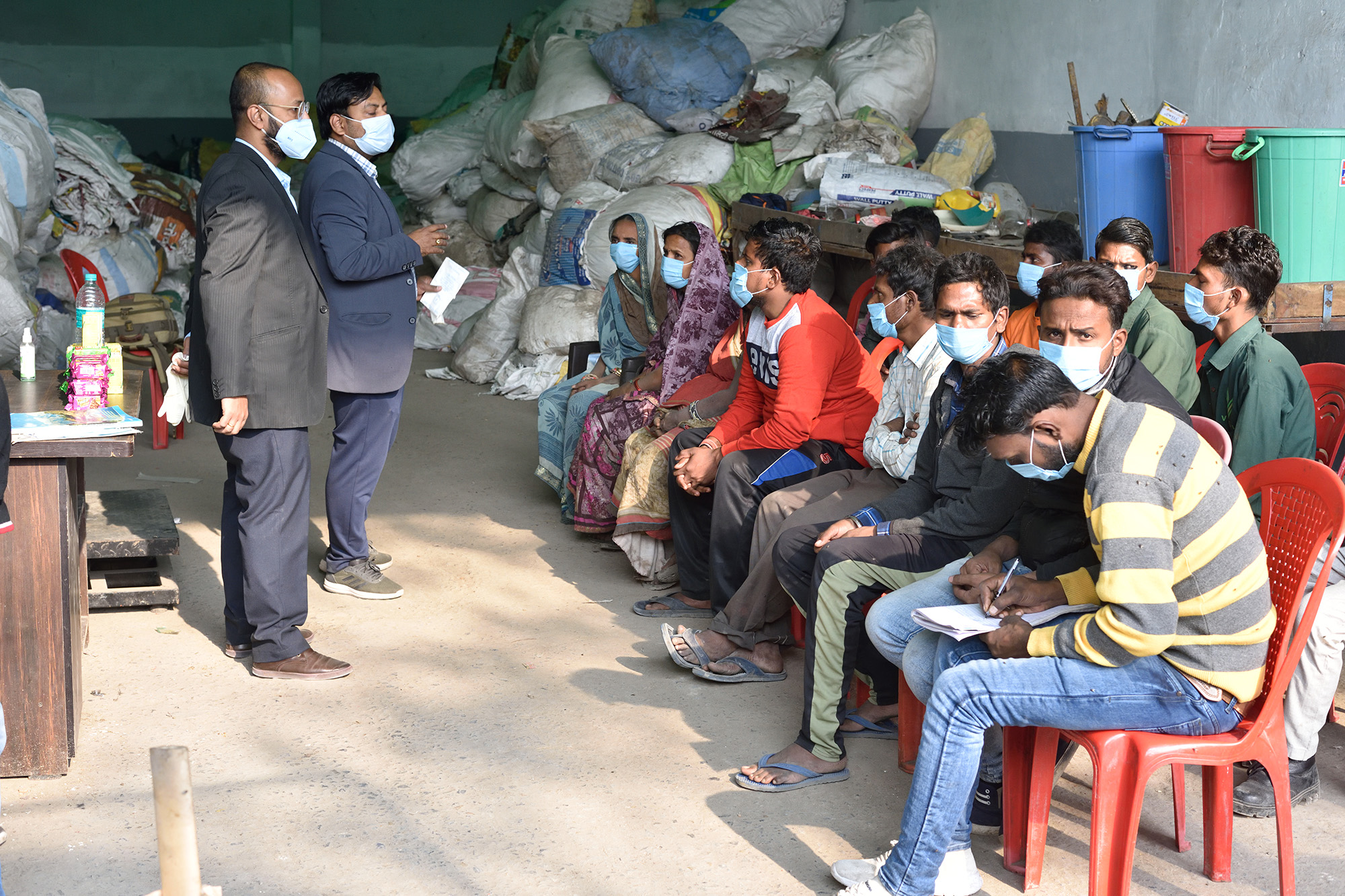Have a question? Mail us at ccce.india@giz.de
NAMA Facility on behalf of BMWK AND EU
September, 2020 - August, 2028
Bengaluru, Goa, Patna, Varanasi, and Tiruchirappalli
Low-Carbon transformation of the Indian waste management sector.
Today, a third of India’s 1.2 billion people live in urban areas. Together, they generate approximately 62 million tonnes of Municipal Solid Waste (MSW) annually. This amount is expected to reach 165 million tonnes per year by 2030. As a result, the already-massive annual Greenhouse Gas (GHG) emissions from MSW are expected to double totalling at 41 million tonnes CO2e by 2030.
Until now, most MSW is disposed of at landfills or unmanaged dumpsites, which not only causes greenhouse gas emissions and other environmental, social and economic problems, but also disturbs operations of existing composting facilities, Material Recovery Facilities (MRFs), biomethanation and refuse-derived fuel (RDF) plants. The barriers in the sector include an absent waste segregation-at-source, deficient management capacities, a lack of data regarding waste composition as well as insufficient financing and enforcement of existing regulations and policies.
The project aims to achieve low-carbon transformation of the Indian waste sector by scaling up and de-risking investments and strengthening the regulatory framework, thus ensuring uptake of the Reduce, Reuse, Recycle concept and leveraging the strengths of the informal recycling sector. In addition, the NSP facilitates the implementation of extended producer responsibility (EPR) through platforms for the coordinated engagement of various stakeholders.
The project is implemented in five model geographies: Bengaluru, Patna, Goa, Varanasi, and Tiruchirappali, creating model Source Segregation Systems for MSW, setting up semi-mechanised MRFs and upscaling existing recycling facilities. The project consists of two financial mechanisms – a Grant Funding Mechanism (GFM) and a Risk Sharing Facility (RSF). Under GFM, the project is supporting urban local bodies to set up or upscale low-carbon waste facilities like biomethanation, composting, refuse derived fuel, and recycling. The RSF is aimed at providing partial debt guarantees to waste management enterprises.
In addition, the project also provides technical assistance to spread awareness among waste generators about low-carbon waste management technologies. As technical assistance, the project also supports in capacity building of ULB staff as well as informal waste management workers through trainings and workshops. The project is also supporting formalisaton of informal waste collectors.
The project also supports national and sub-national decision-makers in developing SOPs, standards, and guidelines to promote appropriate low-carbon waste management facilities.
 An Informal Waste Worker segregating dry waste by a beautified wall of a MRF centre supported by the project in Varanasi (©GIZIndia/Rittyz Kashyap)
An Informal Waste Worker segregating dry waste by a beautified wall of a MRF centre supported by the project in Varanasi (©GIZIndia/Rittyz Kashyap)
 EU Ambassador, his excellency Hugo Astuto during his visit to waste management facilities of Bengaluru organised by the project (©GIZIndia/Madhu)
EU Ambassador, his excellency Hugo Astuto during his visit to waste management facilities of Bengaluru organised by the project (©GIZIndia/Madhu)
 Informal Waste Sector training organised by the project in Varanasi (©GIZIndia/Ashwini Kumar)
Informal Waste Sector training organised by the project in Varanasi (©GIZIndia/Ashwini Kumar)
2023 Climate Change and Circular Economy. All Rights Reserved.
Site By -